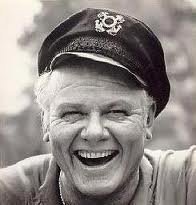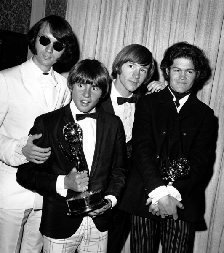Who invented aluminum foil....
A study of the history of aluminum foil indicates that on April 2, 1889, Charles Martin Hall got a patent for producing the metal.
The first rolling plant came out in 1910, called Dr. Lauber, Neher, Cie and Emmishofen. This was in Kreuzlingen, Switzerland.
Early History and Origin
Before aluminum foil came out, tin foil was used for packing foods and other products. The metal was stiff and could leave an adverse effect on the food. It was in 1825 that aluminum was discovered, courtesy of Hans Christian Oersted. The Danish chemist was the first to show actual samples of the foil.
In 1845, the German scientist Friedrich Wohler was able to produce bigger samples. Through his work the basic characteristics of the metal could be discerned. This was a crucial point in the history of aluminum foil.
It was in 1854 that the French chemist Henry Deville developed the means for mass producing it. Despite his efforts, foil was still too expensive to be of any practical use. It was not until Hall’s invention that the material became affordable. The patent number of the US inventor was #400,666.
In 1888, Hall set up the Pittsburgh Reduction Company. It would become known as the Aluminum Company of America. From $1,200 a kilo in 1852, the cost of aluminum foil had gone down to 18 cents per pound in 1914.
Another important inventor was Karl Joseph Bayer. In 1888, the
Austrian chemist invented a process so aluminum oxide could be extracted from bauxite. This was another vital chapter in the history of aluminum foil. Today his methodology is still being used.
The Lauber Aluminum Rolling Plant
The Lauber plant in Switzerland was maintained by J.G. Neher and his sons. Their plant was located at the base of the Rhine Falls. They were able to exploit the falls’ energy to process the metal.
It was here that Lauber learned the protective use of the metal. From that point on, the metal started being used for packaging food. Today it is also being used for lacquer and embossing.
Uses
Today the metal has become an indispensable part in many industries. The most common utilization is packaging. Without aluminum, the fats will oxidize. Throughout the history of aluminum foil, its use in preserving food remains its most well known application.
It is also used when storing pharmaceutical products and milk. It is also employed in pouches, tubes and cigarettes. It is also used to preserve leftover food.
It is also used for thermal insulation, and cable liters. Special aluminum foils is also used in aircraft. Special aluminum foil can be used to block radio broadcasts. It is also employed for cooking foods like mushrooms.
It is also utilized when grilling foods. In some cases, aluminum has also been employed for ornament and decorations. Using anodization, metallic aluminum can assume other colors.
The history of aluminum foil shows just how important it has become. Although it is no longer regarded as a precious metal, its service to modern living cannot be ignored.
Whether it's Christmas morning, or any morning, you don't need to spend a lot of time in the kitchen making breakfast. This hearty no-fuss breakfast bake is a cinch, and you'll have plenty of time to spend with your gang!
- 1 pound hot or mild ground pork sausage
- 1/2 (16-ounce) package frozen shredded hash brown potatoes (about 3 cups)
- 1 cup (4 ounces) shredded sharp Cheddar cheese
- 6 large eggs, beaten
- 3/4 cup milk
- 3/4 teaspoon dry mustard
- 1/2 teaspoon salt
- Dash of black pepper
- Preheat oven to 350º. Coat a 9- x 13-inch baking dish with cooking spray.
- In a large skillet, brown sausage, stirring until it crumbles and is no longer pink; drain. Layer potatoes, sausage, and cheese in prepared baking dish.
- In a medium bowl, combine remaining ingredients; pour over sausage mixture.
- Bake, covered, 30 minutes; uncover and bake an additional 5 minutes or until set. Let stand 10 minutes before serving.

1959 – Lester Holt, American television journalist
On March 8t, National Oregon Day recognizes the Beaver State. Valentine’s Day 1859, Oregon became the 33rd state to join the Union.
Oregon’s climate enjoys the warm Pacific air west of the Cascade Mountains and in the lush Willamette Valley. More extreme temperature ranges are experienced in Oregon’s high desert.
Populations of Nez Perce, Chinook, Mollalla, and others settled along the Columbia River Gorge, Klamath Basin, and points east. Many of the first European explorers to arrive sought the elusive Northwest Passage
The Corps of Discovery Expedition followed the Colombia River Gorge, reaching the Pacific Ocean in November of 1805. They would winter at Ft. Clatsop. Soon, pioneers would follow along what would become the Oregon Trail.
The gorge was created from volcanic lava flows and glacial floods. Windsurfers flock to the Columbia due to the powerful, steady winds off of the Cascade Mountains. Kayaking, biking, hiking, skiing and many other outdoor adventures can be found up and down the Gorge, but its icy crown is Mt. Hood. The Stratovolcano’s last eruption occurred in 1865 and was named after Lord Samuel Hood.
South along the Cascade Range, a sleeping volcano forms the mysterious Crater Lake. A well-planned hike along the trails to the remote brilliant, blue waters of the deepest lake in the U.S. is worth the effort. The pristine volcano is a wonder to see. Eastern Oregon takes on the color of a sunset in the undulating Painted Hills near Mitchell.
HOW TO OBSERVE
Explore all the wonders of Oregon!












No comments:
Post a Comment